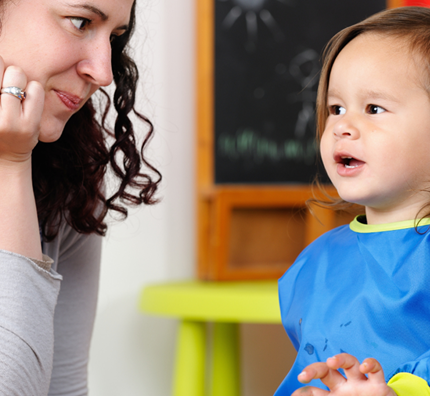As a parent, you are your child’s first teacher, especially when it comes to language and social skills. Talking to your baby, toddler, or young child is one of the most powerful ways to support their development. Even if they aren’t talking yet, your words are teaching them vocabulary and helping them understand emotions. Here’s how these early conversations benefit your child’s growth—and what to do if you’re concerned about their progress.
Language Development Starts Early
Language learning begins the moment your baby is born. Even though babies can’t talk, they are always listening and picking up on the sounds, patterns, and rhythm of speech. By talking to your baby—explaining what you’re doing or pointing out objects—you’re helping them understand how language works.
For instance, saying, “I’m getting your bottle,” helps them connect words to actions. These everyday conversations are building the foundation for your child’s language skills.
Growing Vocabulary
The more words your child hears, the more words they’ll learn. Research shows that children who are exposed to a rich vocabulary early on tend to have stronger language skills. You can help by talking about what you’re doing, what you see, or how you’re feeling. Asking questions like, “What’s that?” or “How does it feel?” also encourages your child to think and respond.
Reading books, singing songs, and labeling objects in your home are great ways to help your child expand their vocabulary.
Understanding Emotions
Talking to your child helps them learn about emotions. Babies and toddlers pick up on your tone of voice, facial expressions, and body language. By talking to them about feelings—such as saying, “I see you’re sad because we can’t go outside right now”—you help them identify and understand their own emotions.
This emotional vocabulary helps children express their feelings and builds empathy. Over time, they learn to handle their emotions better, which is key for social and emotional development.
Strengthening Parent-Child Bonds
Talking to your child also helps build a strong bond between you. Whether you’re having a conversation, singing, or reading together, these moments of connection make your child feel safe and supported. This sense of security boosts their confidence and strengthens their ability to communicate with others.
Concerned about your child’s language development? South Carolina resources can help
If you’re worried your child’s language skills aren’t developing as they should, South Carolina offers several resources:
- Speak with Your Pediatrician
Your pediatrician can provide a developmental screening if you’re concerned about delays in speech or language milestones.
- Contact South Carolina BabyNet
BabyNet is an early intervention program for children under three years of age who have developmental delays or diagnosed conditions associated with developmental delays. If eligible, your child can receive services such as speech therapy at no cost to your family. Learn more here.
- South Carolina First Steps
South Carolina First Steps offers parenting programs, early education, and resources to support your child’s development. Visit their website for more information.
- Find a Speech-Language Pathologist
You can find a local speech-language pathologist (SLP) through clinics and hospitals. Find information here.
Just keep talking
Talking to your child not only builds language and emotional skills, but it also strengthens your relationship. If you’re worried about their language development, early intervention is key, and resources in South Carolina can help guide you through the process.

Did you know that talking to your baby, toddler, or young child is one of the most powerful ways to help them grow? Everyday conversations not only build their vocabulary but also teach them how to express emotions and connect with others.
